27+ SAMPLE Real Estate And Rental Business Plan
-
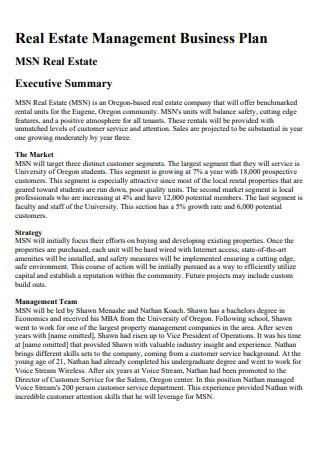
Real Estate Management Business Plan
download now -
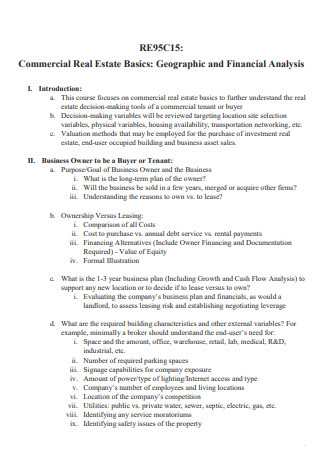
Commercial Real Estate Business Plan
download now -
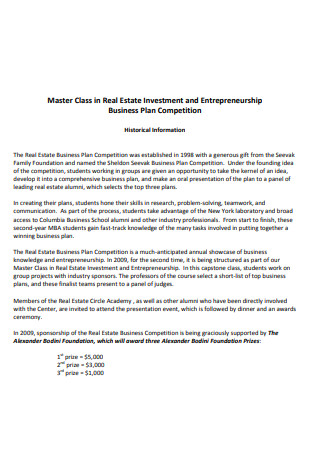
Real Estate Investment Business Plan
download now -
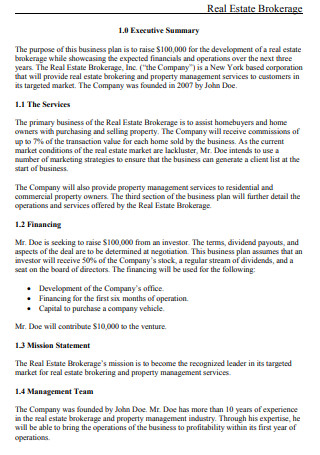
Real Estate Brokerage Business Plan
download now -
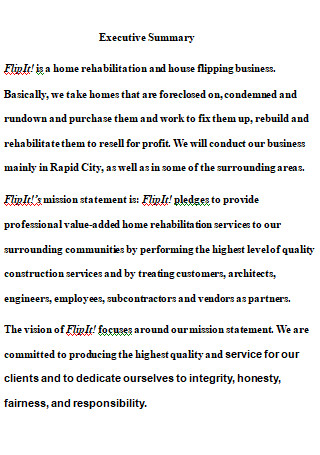
Real Estate Flipping Business Plan
download now -
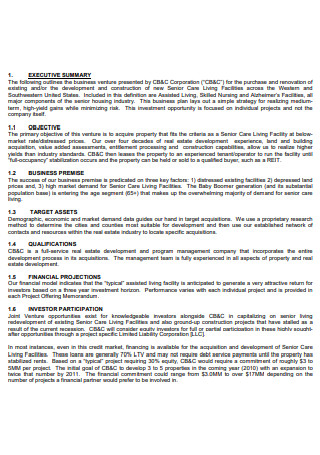
Real Estate Development Business Plan
download now -
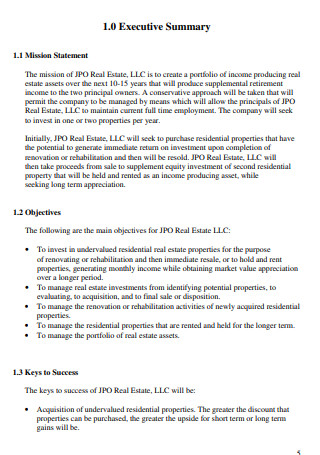
Business Plan For Rental Real Estate Investing
download now -
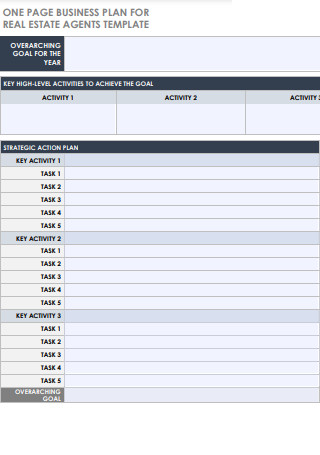
Real Estate Agent One Page Business Plan
download now -
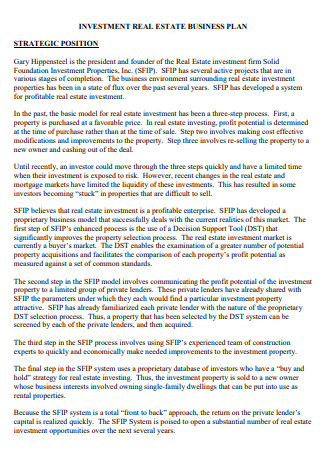
Sample Real Estate Investment Business Plan
download now -
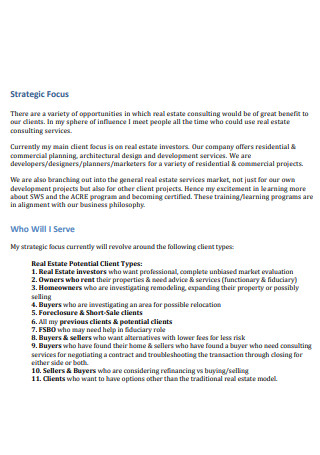
Real Estate Consulting Business Plan
download now -
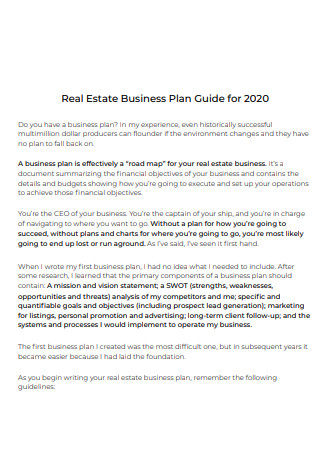
Real Estate Business Plan Guide
download now -
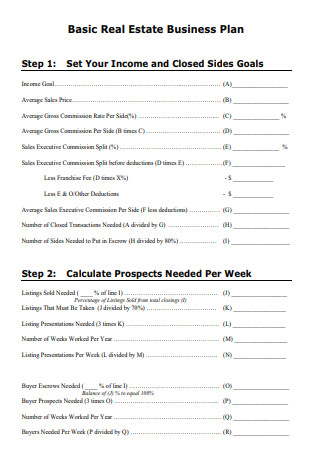
Basic Real Estate Business Plan
download now -
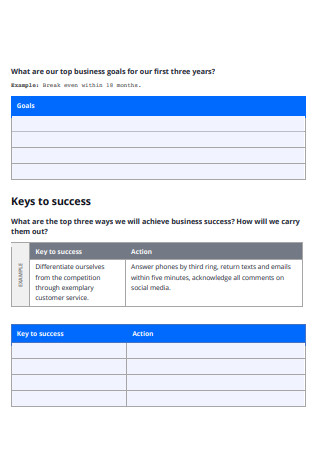
Simple Real Estate Business Plan
download now -
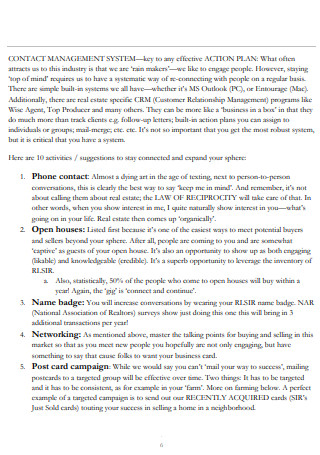
Real Estate Business Strategic Plan
download now -
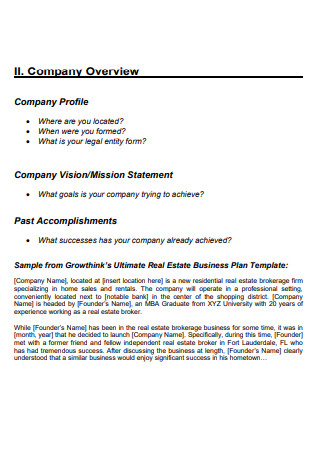
Ultimate Real Estate Business Plan
download now -
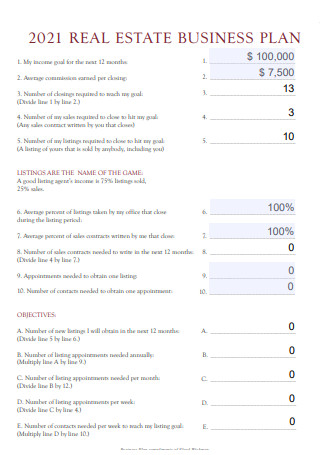
Formal Real Estate Business Plan
download now -
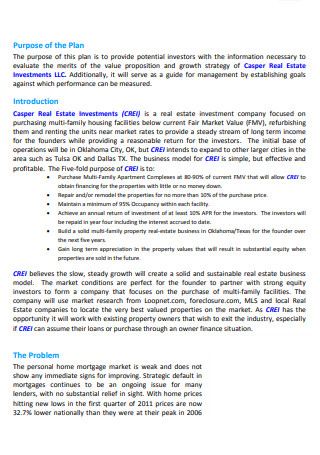
Apartment Rental Business Plan
download now -
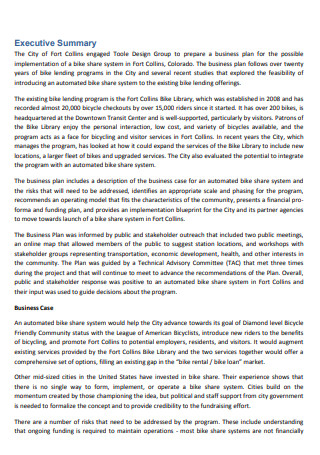
Bike Rental Business Plan
download now -

Car Rental Business Plan
download now -
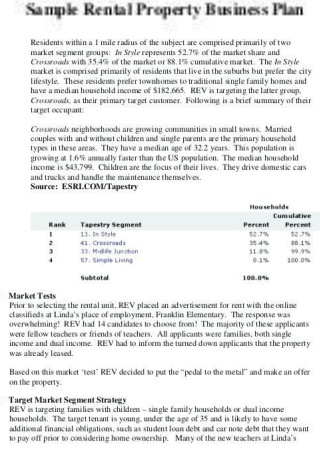
Sample Rental Business Plan
download now -
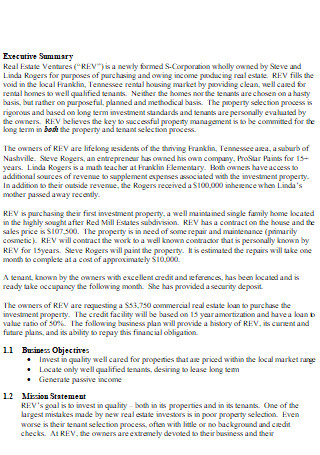
Sample Rental Property Business Plan
download now -
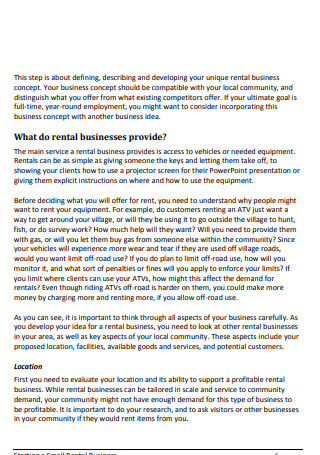
Small Rental Business Plan
download now -

Tent Rental Business Plan
download now -
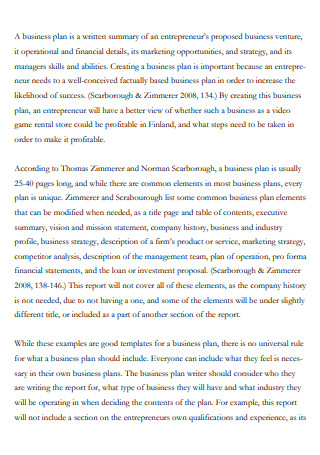
Video Game Rental Business Plan
download now -
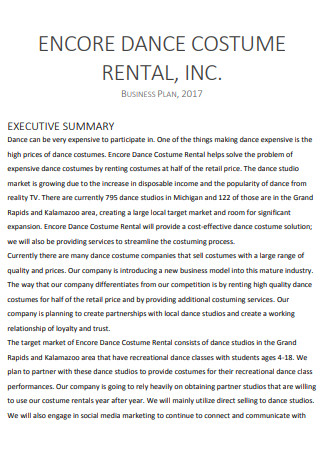
Dance Costume Rental Business Plan
download now -
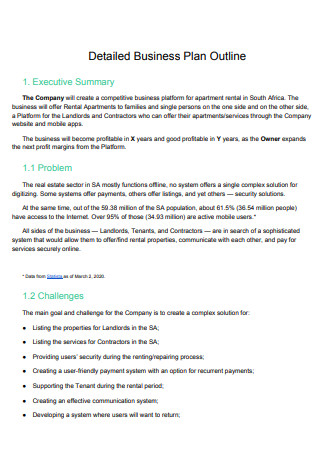
Rental Apartments Business Plan Outline
download now -
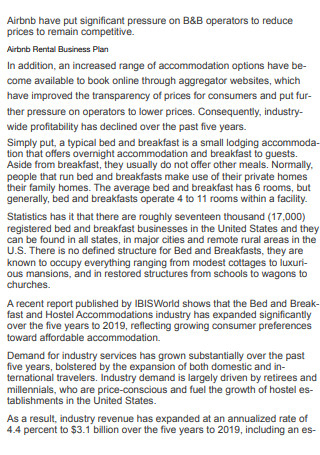
Rental Business Plan Template
download now -

Online Rental Service Business Plan
download now
FREE Real Estate And Rental Business Plan s to Download
27+ SAMPLE Real Estate And Rental Business Plan
What is a real estate rental business plan?
Key Elements of a Real Estate Rental Business Plan
How to Grow Your Real Estate Rental Business Plan
What are the types of real estate?
What is the 2% rule in real estate?
Do all businesses require a business plan?
What is a real estate rental business plan?
Real estate, which is property that comprises a certain amount of land along with the establishments and resources that come with it, is a business interest that a lot of people are invested in. A real estate rental business plan refers to the formally written document regarding the goals of the business model, the specific actions and methodologies required for the proprietors to achieve those goals, as well as the time frame in which these things ought to be accomplished. A business plan allows a better execution to be done, because it serves as a framework for businesses to follow.
Key Elements of a Real Estate Rental Business Plan
Real estate rental business plans have a specific nuance, which is the process of allowing an area to be rented as opposed to the immediate selling of the latter. Rentals require more attention and a wider scope of handling since these give way to transactions that happen regularly or more than once. Moreover, it also gives the incentive to the proprietor of the real estate to make sure that the resources, establishments, and materials within the area are well-taken care of, and are maintained due to the place technically still being theirs, and may be rented by another entity in the future. With that being said, it is important for the business plan, which is the skeleton and starting point of your business, to be very precise and well-formulated. Here are the key elements of a real estate business plan.
How to Grow Your Real Estate Rental Business Plan
Depending on your sources, there will always be differing parts of a real estate business plan. However, there are core aspects that are inherently needed once you involve yourself into this form of work in order to make your business plan a lot more detailed and structured, which can help your business flourish even more in the long run. After learning about the key elements of a real estate rental business plan, it is essential for you to know how to write one, since it can be a complex process, considering how there are a number of pillars that hold together such a business with this much gravity. But of course, while the business plan is very essential to the business itself, it is also important for us to know how to materialize the business plan. Starting is the most difficult thing to do, but once you do, things will just keep on rolling. With that being said, here is how you can grow your real estate rental business.
Step 1: Getting a CRM
A CRM refers to Customer Relationship Management system. This is exactly what allows you to organize your network of clients, hence, helping you keep track of them and be reminded of the specific things and tasks that you need to accomplish and follow up regarding your real estate business in connection to specific clients. This also gives you the avenue to have more clients through giving you a network, as well as helps you become a more reliable business partner because this management system exactly makes you become one.
Step 2: Building an Action Plan
An action plan is a structured matrix of details that lead up to a certain end goal. Your action plan could be short-term in order for the smaller tasks to still be given attention to. This looks like a series of steps that you have to take, or perhaps a list of different segments regarding your business that you have to finish within the week. For instance, if your goal is to get 20 leads for the next month, then your action plan should automatically lead to that. Or perhaps, it could be that your goal is to collect all the dues for this month and take account of all the business reports, then your action plan should also comprise of the necessary steps that lead up to that. You have to be consistent in following your action plan for it to work.
Step 3: Referring to Your Business Plan
Always look back to your business plan to guarantee that your actions are aligned to it. Your business plan is the skeleton of your business, and the pre-planned ideas are always the ones that work best since they are calculated. Make sure that your spending coincides to your financial plan to avoid excess spending, and always work hard to achieve your estimated profit in order to reach your intended earnings as said in your business plan. Remember your SWOT analysis as well, in order for you to know your contingencies regarding your threats and weaknesses, as well as your strategies to maximize profit using your knowledge regarding your strengths and opportunities. These things always give your business a boost.
Step 4: Market Strategy
One thing you need to know is that you should be consistent with your marketing strategy. You may follow the kinds of strategies you have listed down in your business plan. Basically, it is important for you to be consistent if you want to expand your network of clientele. If needed, you may create new marketing plans in order to give your real estate business a boost. For example, during festivals within your area that are surely going to attract travelers and tourists, you may post ads on sites where people look for spaces to rent, or perhaps build partnerships with websites that showcase different rental spaces. A big group of tourists could be eyeing to go to your area, and you may be the best option.
Step 5: Strengthening Prospects and Leads
If you are thinking long term, it is best that you continue to consistently prospect. Your prospecting strategy should be sustained, since there are a lot of cases where proprietors have expanded their earning even with just a small but consistent number of contacts. A lot in your existing network could be looking for what you have, but you will never be sure unless you make the first move. With that being said, do not forget to e-mail your contacts, or even give them updates regarding your properties, and the like. Maintaining your energy to get leads is also a good way for you to make sure that your business stays flourishing.
What are the types of real estate?
Considering that real estate deals with property, and that in and of itself can go to a wide range of different types, there truly are a variety of them. For one, there is the residential real estate which pertains to a set of houses in a specific areas, where different people can move in to rent or buy the place. This typically looks like single-family homes, or condominiums. Another type is the commercial real estate which is more of an area where people can set up shop, or have establishments for leisure, and the like. Commercial real estate comprises only a small percentage of all real estates since areas for shelter are surely more on-demand than those that aim to sell. This comes in the form of office spaces, retail spaces, grocery stores, and movie theaters. Third, the industrial real estate, which is similar to commercial real estate but with a different purpose, pertains to areas such as those in manufacturing, production facilities, and research centers. Corporations funding the aforementioned usually rent or buy real estate in order to have a place to conduct their purpose. Last is the land real estate which pertains to raw land to be rented, and more often than not, gentrified by the buyer. It could be a ground for camping and activities regarding nature as well, or be one to be used for farming.
What is the 2% rule in real estate?
The 2% rule in real estate is that the monthly renting fee to be paid by your clients should be 2% of the total value of your property in and of itself.
Do all businesses require a business plan?
Yes. Businesses are not created overnight and are set up in one go, which is why careful planning is always one of the first steps in starting any business at all. The conclusion and finalization of this careful planning are then reflected onto business plans, which make the details much more tangible, hence, making it easier to be materialized.
Being one of the most booming industries in the market, a lot of people are thinking about going for real estate, through perhaps starting a business, or investing in one. It is a good choice because people will always look for property to serve as their shelter, or perhaps to set up a new business venture. With that being said, it is really strategic for you to create a business plan first and foremost, because this allows you to be preemptive regarding possible problems that may arise, and even gives you the chance to calculate your actions, decisions, and spending even more. You become a better businesswoman or businessman once you focus on your business plan first, hence, making you a good strategist.
